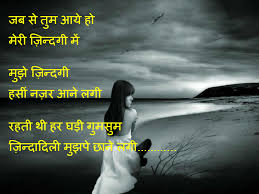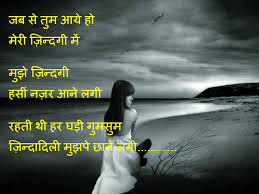
Urdu poetry ,Saairee is a rich tradition of poetry and has many different forms. Many of the poetic forms and structures are of Arabic origin. Today, it is an important part of the cultures of South Asia. Meer, Dard, Ghalib,Anees, Dabeer, Iqbal, Zauq, Josh, Akbar, Jigar, Faiz, Firaq, Shakeb Jalali, Ahmad Nadeem Qasmi, Shair, Mohsin, Faraz and Faizi are among the greatest poets of Urdu. The language of Urdu got its pinnacle under the British Raj, and it received official status. All famous writers of Urdu language including Ghalib and Iqbal were given British scholarships. Following the Partition of India in 1947, it found major poets and scholars were divided along the nationalistic lines. However, Urdu poetry is cherished in both the nations. Both the Muslims and Hindus from across the border continue the tradition.
Its fundamentally a performative poetry and its recital, sometimes impromptu, is held in Mushairas (poetic expositions). Although its tarannum saaz (singing aspect) has undergone major changes in recent decades, its popularity among the masses remains unaltered. Mushairas are today held in metropolitan areas worldwide because of cultural influence of South Asian diaspora. Ghazal singing and Qawwali are also important expository forms of Urdu poetry. Bollywood movies have a major part in popularising Urdu poetry with younger generations.

Forms of Urdu poetry
The principal forms of Urdu poetry are:
- Ghazal, is a set of two liner couplets, which strictly should end with the same rhyme and should be within one of the predefined meters of Ghazals. There has to be minimum of five couplets to form a Ghazal. Couplets may or may not have same thought. It is one of the most difficult forms of poetry as there are many strict parameters that one needs to abide by while writing Ghazal. It is important to think about the topic as well as the theme of a Ghazal before starting to write it. The first line of a Ghazal must include a Refrain, which is a word or a phrase that can be easily fitted into the other couplets. Each couplet of a Ghazal is known as Sher, which forms a Shayari. Thus, it means that different Shayaris together form a Ghazal.
- Hamd is a poem in praise of Allah. The word “hamd” is derived from the Qur’an, its English translation is “Praise”.
- Manqabat is a Sufi devotional poem, in praise of Ali ibn Abi Talib, the son-in-law of Muhammad, or of any Sufi saint.
- Marsiya is an elegy typically composed about the death of Hasan, Husain, or their relatives. Each stanza has six lines, with the rhyme scheme aaaabb. The famous marsia writers who inherited the tradition of Mir Anis among his successive generations are Mir Nawab Ali ‘Munis’, Dulaha Sahab ‘Uruj’, Syed Mohammed Mohsin (Jaunpuri), Mustafa Meerza urf Piyare Sahab ‘Rasheed’, Syed Muhammad Mirza Uns, Ali Nawab ‘Qadeem’, Syed Sajjad Hussain “Shadeed” Lucknavi, Allama, Dr.Syed Ali Imam Zaidi, “Gauher” Luckhnavi the great grandson of Mir Babber Ali Anis.
- Masnavi is a poem written in couplets in bacchic tetrameter with an iambus for last foot. The topic is often romance.Mir Taqi Mir and Sauda wrote some of this kind. The Religious masnavi History of Islam (Tarikh-e-Islam Az Quran) written by Dr. Syed Ali Imam Zaidi Gauher Lucknavi.
- Na`at is a poetry that specifically praises the Islamic prophet Muhammad.
- Nazm Urdu nazm is a major part of Urdu poetry. From Nazeer Akarabadi, Iqbal, Josh, Firaq, Akhtarul Iman to down the line Noon Meem Rashid, Faiz, Ali Sardar Jafriand Kaifi Azmi. They have covered common life, philosophical thinking, national issues and the precarious predecament of individual human being.As a distinct form ofNazm many Urdu poets influenced by English and other European poets took to writing sonnets in Urdu language. Azmatullah Khan (1887-1923) is believed to have introduced this format to Urdu Literature. other renowned Urdu poets who wrote sonnets were Akhtar Junagarhi, Akhtar Sheerani, Noon Meem Rashid, Zia Fatehabadi, Salaam Machhalishahari and Wazir Agha.
- Qasida, usually an ode to a benefactor, a satire, or an account of an event. It uses the same rhyme system as the ghazal, but is usually longer.
- Qawwali, is a form of Urdu poetry read along with devotional music, A Qawwali is almost always dedicated to particular Sufi.
- Ruba’i, is a poetry style, the Arabic term for “quatrain”. The plural form of the word, rubāʿiyāt, often anglicised rubaiyat, is used to describe a collection of such quatrains.
- Shayari, a musical form of Urdu poetry, allows a person to express deep feelings through words. It lets one explain sentiments in all their forms through rhythmic words. In the Urdu and Hindi languages, Shayari, also known as poetry, consists of couplets, or Sher.
- Tazkira is a biographical anthology of poetry.
Finest Example Of Shayari
Sheikh Mohammad Ibrahim Zauq was the pen name of Sheikh Ibrahim (1789-1854), one of the brightest stars in the galaxy of Urdu poets. One of the shaiyari writtern by him is as follows:
Ab to ghabra ke ye kahte hain ke mar jayenge
Mar ke bhi chain na paya to kidhar jayenge
Tum ne Thahrayee agar Gair ke ghar jaane ki
To iraade yahaan kuchh aur Thahar jaayenge
Ham nahin vo, jo karen Khoon kaa dava tujh par
Balqi puchhegaa Khuda bhi to mukar jaayenge
Aag dozakh ki bhi ho jaayegi paani paani
Jab ye aasi arq-e-sharm se tar jaayenge
Sholaa-e-aah ko bijali ki tarah chamakaun
Par mujhe Dar hai, ki vo dekh kar Dar jaayenge
Laaye jo mast hain turbat pe gulaabi aankhen
Aur agar kuchh nahin, do phool to dhar jaayenge
Nahin paayegaa nishaan koi hamaara hargiz
Ham jahaan se ravish-e-tir-e-nazar jaayenge
Pahunchenge rahaguzar-e-yaar talak ham kyun kar
Pahle jab tak na do aalam se guzar jaayenge
‘Zauq’ jo madarase ke bigare hue hain mullaah
Unko maikhaane men le aao sanvar jaayenge
